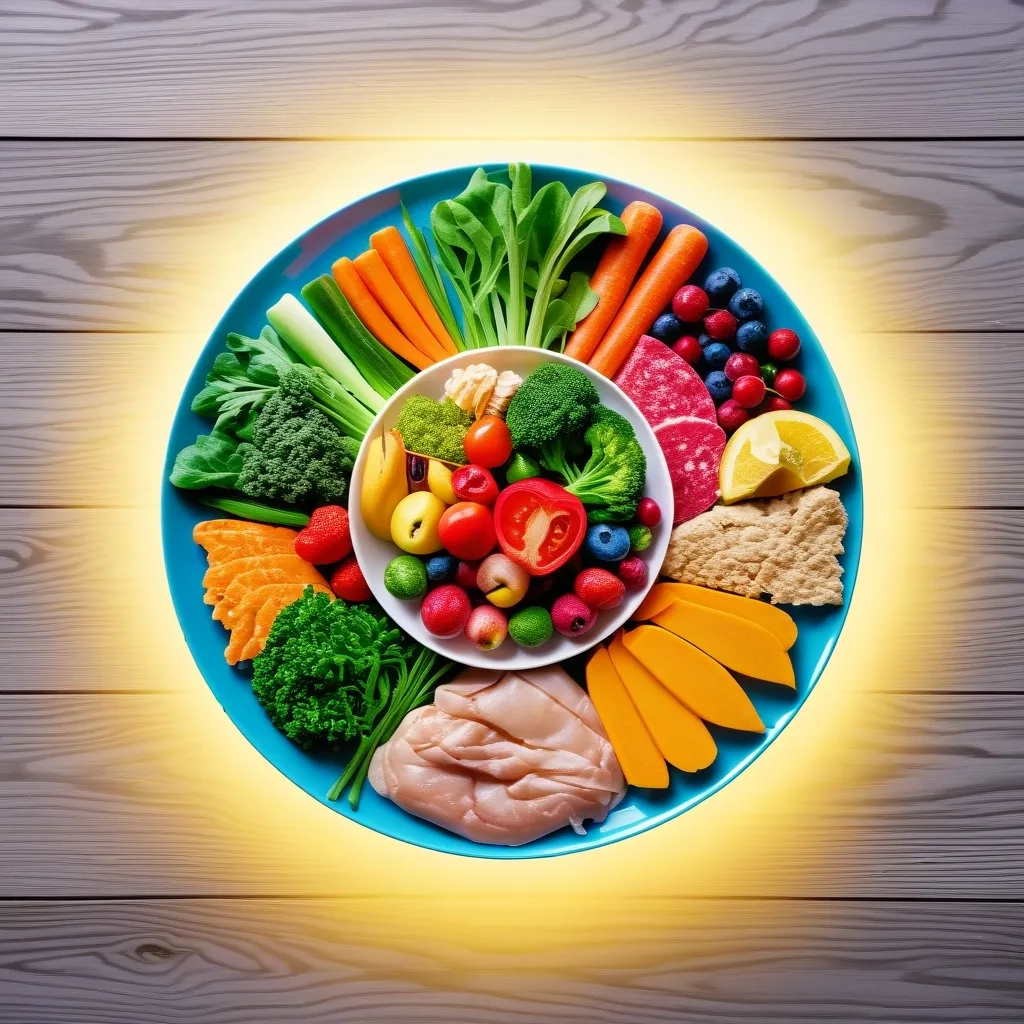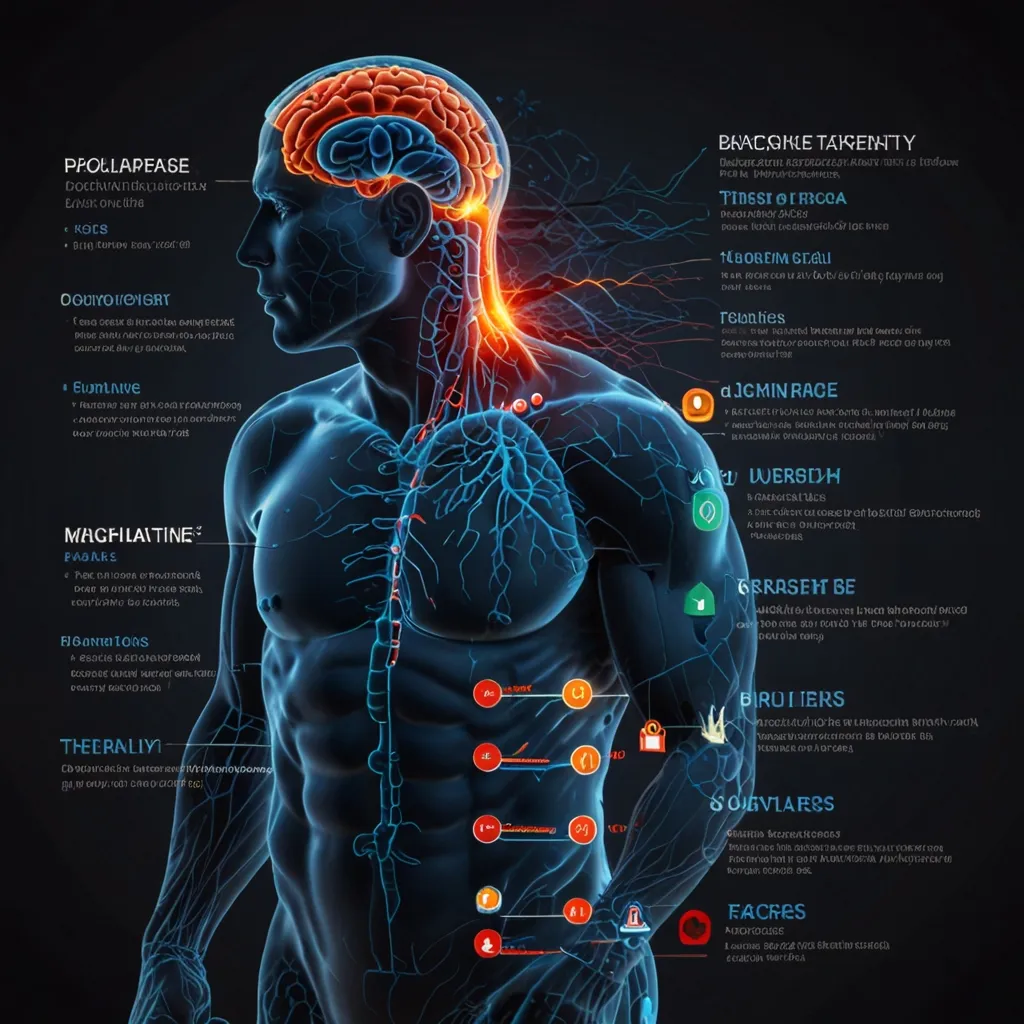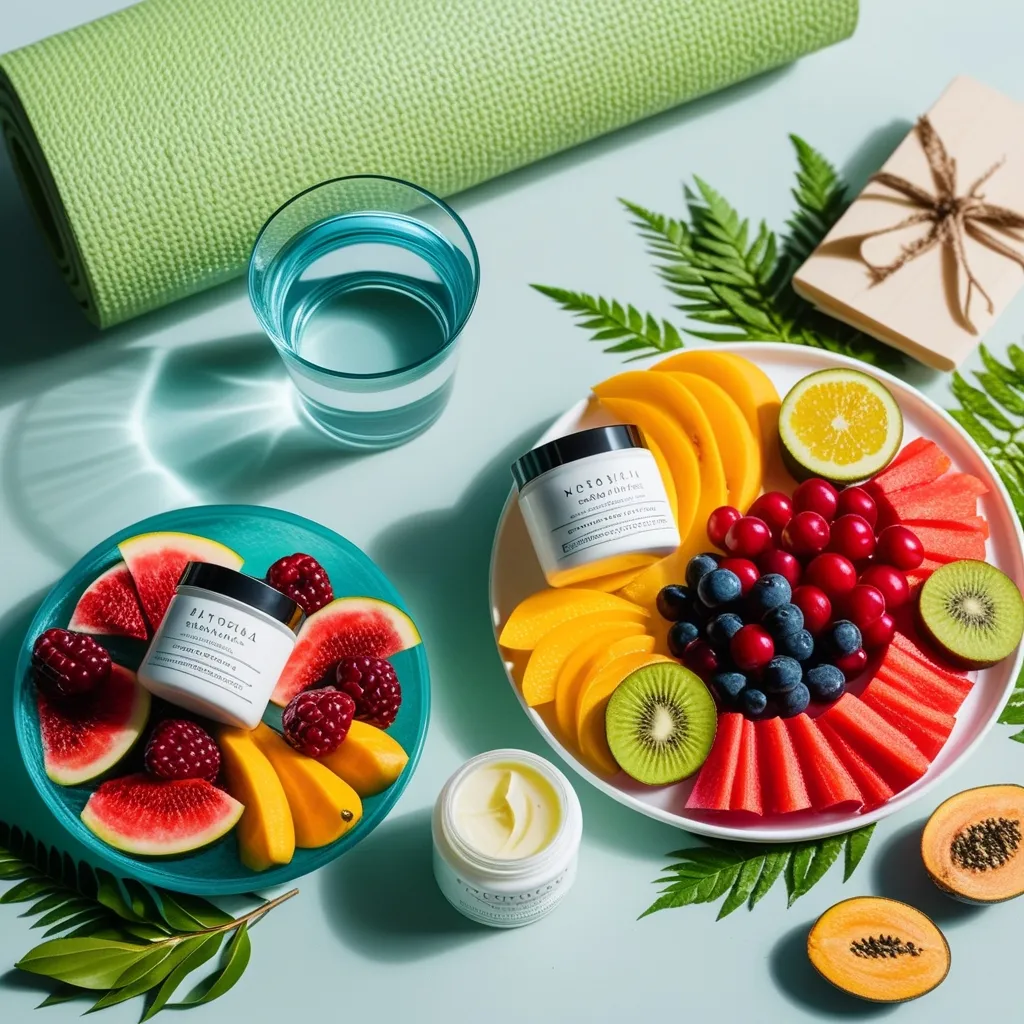Food Intolerances: A Guide to Understanding, Managing, and Thriving
Ever felt like your stomach was waging war against you after a meal? You’re not alone. Food intolerances are more common than you might think, and they can turn eating into a minefield of discomfort. But don’t worry, we’re here to help you navigate this tricky terrain.
Let’s start with the basics. Food intolerances are different from allergies. While allergies can send you to the ER, intolerances are more like that annoying friend who overstays their welcome - uncomfortable, but not life-threatening. They happen when your body struggles to digest certain foods, leading to a whole host of not-so-fun symptoms.
So, what are these symptoms? Well, it’s like your body’s way of throwing a tantrum. You might experience bloating (hello, food baby!), weird changes in your bathroom habits, stomach pain that makes you want to curl up in a ball, nausea that has you eyeing the nearest trash can, heartburn that feels like a dragon has taken up residence in your chest, headaches that make you want to hibernate, or diarrhea that… well, let’s just say it’s not pleasant. These symptoms can stick around for a few hours or even a few days, which is why it’s crucial to figure out what’s causing them.
Now, let’s talk about the usual suspects. Dairy and gluten are often the first to be blamed, and for good reason. Lactose intolerance is super common - it’s like your body forgot to pay its lactase subscription (that’s the enzyme that breaks down milk sugar). Gluten intolerance can range from “meh, I feel a bit off” to full-blown celiac disease, where gluten becomes your body’s arch-nemesis.
But wait, there’s more! Soy, peanuts, citrus fruits, those sneaky hydrogenated oils, added sugars (I’m looking at you, candy bar), alcohol (sorry, weekend plans), and caffeine can all be troublemakers. Even some veggies aren’t off the hook. Nightshades like tomatoes and peppers, and FODMAPs (don’t worry about pronouncing it) found in foods like beans and cabbage can cause issues for some people.
So, how do you figure out what’s causing your digestive drama? Enter the elimination diet - it’s like playing detective with your food. You remove suspected foods from your diet for a few weeks, then reintroduce them one by one to see if your body throws a fit. It’s not exactly a party, but it’s effective.
Here’s how it works: Let’s say you think gluten is your nemesis. You’d say goodbye to all gluten-containing foods for about 2-3 weeks. Then, you’d slowly reintroduce gluten and watch for any symptoms. It’s like a stakeout, but instead of catching bad guys, you’re catching bad foods. Keeping a food diary during this time can be super helpful. It’s like having a confidential informant in your investigation.
Once you’ve cracked the case and identified your food foes, it’s time to focus on healing your gut. This isn’t just about avoiding certain foods - it’s about giving your gut some TLC. Think of it as a spa day for your digestive system.
Start by eating a variety of veggies, meats, and fruits. Your gut loves diversity! Include nutrient-dense foods like bone broth (it’s not just for hipsters), fermented foods like kimchi and sauerkraut (they’re like a party for your good gut bacteria), healthy fats like avocado (because who doesn’t love avocado?), and high-quality proteins like eggs and poultry. These foods are like a superhero team for your immune system and gut health.
Probiotics are another great addition to your gut-healing arsenal. They’re like reinforcements for your good gut bacteria. You can get them through supplements or foods like yogurt (if dairy isn’t your enemy). Intermittent fasting can also give your gut a break. It’s like letting your digestive system take a power nap. And here’s a pro tip: cooking your foods can make them easier to digest. It’s like pre-chewing, but less gross.
Sometimes, your body needs a little extra help. That’s where supplements come in. If you’re lactose intolerant, lactase supplements can be a game-changer. They’re like giving your body a cheat code for digesting dairy. For gluten intolerance, there are enzyme supplements that can help break down those pesky gluten proteins.
It’s also important to make sure you’re not missing out on important nutrients when you cut out certain foods. For example, if dairy is off the menu, you might need calcium and vitamin D supplements to keep your bones happy. Probiotics and digestive enzymes can also be helpful sidekicks in your gut-healing journey.
Now, let’s talk about stress. It’s like kryptonite for your gut. Chronic stress can make food intolerances worse by messing with your gut and immune system. So, find ways to chill out. Maybe try meditation, yoga, or just take some deep breaths. Your gut will thank you.
Anti-inflammatory foods are also your friends. Think omega-3 fatty acids (hello, salmon!), high-fiber fruits and veggies, and leafy greens. On the flip side, avoid inflammatory foods like trans fats and super processed junk. Your gut doesn’t need that drama.
Managing food intolerances isn’t just about what you eat at home. It’s also about being smart when you’re out and about. When you’re dining out, don’t be shy about telling the chef or manager about your food intolerances. Having a chef card that lists your no-go ingredients can be super helpful. It’s like having a bouncer for your stomach.
Reading food labels is also crucial. It’s like being a food detective. Even if you’ve bought something a million times before, always check the label. Manufacturers love to switch things up, and you don’t want any surprises.
So, who should consider going on an elimination diet? Well, if you often feel like garbage after meals, have an autoimmune disorder, allergies, feel tired all the time, or have chronic skin issues, it might be worth a shot. It can also help with irritable bowel syndrome (IBS), leaky gut, skin problems, and headaches.
But here’s the thing - an elimination diet isn’t for everyone. If you have a history of disordered eating, it’s probably not a good idea. And even if you don’t, it’s always best to chat with a healthcare pro before making any big changes to your diet.
Speaking of professionals, working with a gastroenterologist or a registered dietitian can be super helpful. They’re like your personal food coaches. They can help you create a meal plan that works for you, suggest supplements, and keep an eye on your progress. They can also educate you on what foods to avoid and suggest alternatives so you’re not missing out on important nutrients.
Navigating food intolerances can feel like trying to solve a Rubik’s cube blindfolded. It takes patience, awareness, and a willingness to make some changes. But by figuring out your trigger foods, eating a balanced diet, using supplements when needed, reducing stress, and being mindful of what you eat, you can significantly improve your symptoms and overall health.
Remember, food intolerances aren’t necessarily a life sentence. In some cases, you might be able to reintroduce foods after your gut has had some time to heal. The key is to listen to your body (it’s pretty smart, you know), be consistent, and don’t be afraid to ask for help when you need it.
Living with food intolerances doesn’t mean you can’t enjoy food anymore. It just means you need to be a bit more creative and mindful about what you eat. Think of it as an opportunity to explore new foods and recipes. Who knows? You might discover your new favorite dish in the process.
In the end, managing food intolerances is about more than just avoiding certain foods. It’s about taking control of your health and learning to work with your body, not against it. It’s about finding a way of eating that makes you feel good, both physically and mentally. And while it might seem challenging at first, with time and patience, you’ll find your groove.
So here’s to happy eating, happy guts, and a happier, healthier you. You’ve got this!






